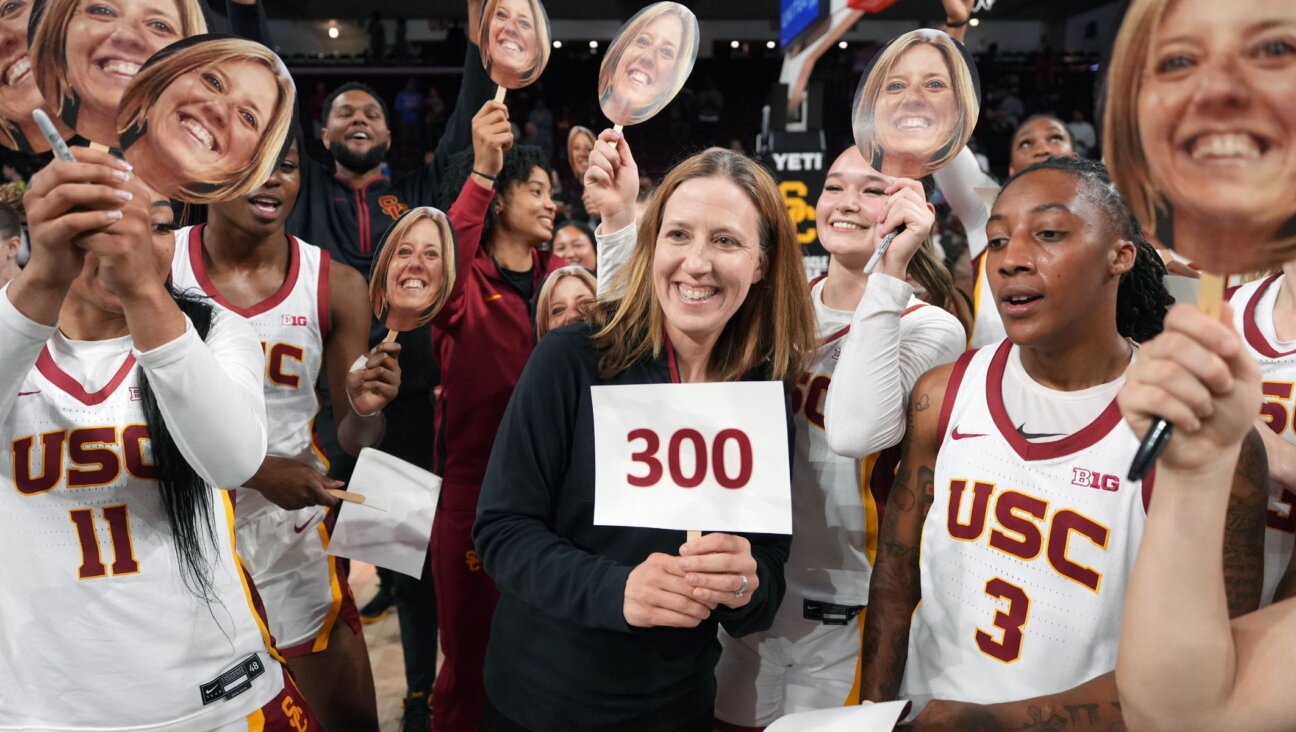Mitzna, Laboring Against the Odds
For a brief moment, in the wake of the revelations regarding vote-buying in the Likud Party primary, Prime Minister Sharon’s party looked to be heading for free-fall. Almost overnight, it lost six or seven seats from its high a week earlier.
But of course the loss was only in the polls; the elections are still a month away, scheduled for the day after the United Nations inspectors are due to report their findings on Iraqi weapons of mass destruction to the Security Council, more or less on the eve of war against Iraq that everyone here in Israel believes is virtually certain to happen. The reluctance to change the nation’s leadership in the face of imminent war is one of the several reasons that Labor, the major opposition party, has experienced only the slightest benefit from the Likud defections, which for now in any case seem to have stabilized.
In the course of a day traveling from campaign stop to campaign stop with Amram Mitzna, Labor’s leader — with opportunity not only to observe his public presence but also to chat with him as we traveled, under heavy military escort, between stops, and to listen to his end of a series of urgent phone calls from party activists — some of the other reasons became clear. The Labor Party itself is plainly in massive disarray, with Binyamin Ben-Eliezer still hoping to reclaim the party after Mitzna’s anticipated loss to Sharon.
Just last week, the party secretary general announced that if Sylvan Shalom, the incumbent finance minister, remains in that position after a Sharon victory, Labor will refuse to enter a National Unity Government — thereby implying that if Shalom is ousted, Labor will enter. But that is precisely what Mitzna has said will not happen, Sylvan Shalom or not.
And then there’s Sharon, looking increasingly grandfatherly, tired but utterly familiar. No matter that his policies regarding security and the economy have failed miserably these last two years. He has deftly moved to the center, separated himself from the scandals that afflict his party, somehow engineered a remarkably symbiotic relationship with the American president and, improbably, he has become the last of Israel’s founding fathers.
Mitzna, for his part, remains largely unknown. He is the rational candidate, the one who promises to tell it like it is: “One hungry child in Israel is a greater threat that one Iraqi Scud.” “The Iraqi war is not our war, we will watch it on television.” “What are we doing in Gaza? Why do we have to send our army there to protect Thai workers in Jewish settlements placed among a sea of Palestinians?” “There will be no advance in education until we stop investing in the settlements, in the territories. Without investing in education, we run the risk of becoming a banana republic.”
All this against a basic platform that is meant to register a very sharp distinction from Sharon: immediate withdrawal from Gaza, immediate negotiations with the Palestinians and, if the negotiations fail, then unilateral Israeli withdrawal from the West Bank, save for the large settlement blocs and the retention of security control in the Jordan Valley. A security fence from Bet She’an to Arad separating the West Bank and Israel. Yasser Arafat? There are others with whom to negotiate.
There is little eloquence and almost no poetry in his presentation, although there is, contrary to reports, considerable passion. His most eloquent moment during a speech at Emek Yizrael College, where he addressed an audience of some 400 students and faculty — no notes, a 45-minute speech and another 45 minutes or so for questions and answers— was on Israel’s own Arab citizens.
“Most Israeli Arabs are loyal to the state,” he said. “There are Jewish traitors as well as Arab traitors; you can’t and you shouldn’t indict a whole population.” “We need an affirmative action program for Arabs. We cannot continue to treat them as we do. Who are we? Were we not a minority? How then can we treat our minority as we do? Nor can we ask Israeli Arabs to drop their feeling of solidarity with the Palestinian people.”
But the woman sitting behind me angrily mumbled, “If they identify with the Palestinians, let them leave; the don’t belong here. This makes my blood boil.” By that token, of course, American Jews don’t belong in the United States, and should therefore move to Israel.
In the last election, Mitzna observed during the speech, the Likud slogan was “Let [the Israeli military] win!” But, he emphasizes, there is no way to defeat 3.5 million Palestinians. It is simply not possible — and in the meantime, the reservists who guard the outpost settlements are targets.
It all makes imminent sense, but there is a near-total absence of electricity. The buzz comes not from Mitzna’s thoughtful words or his sensible proposals, but from the realization of how very real everything is here, life without cushion, without insulation.
The elegant Carmel Forest Spa was once a rest home for Holocaust survivors; make the wrong turn off the main highway to the idyllic town of Zichron Ya’acov and you’re in the West Bank city of Jenin in four minutes. Speed as fast as you dare if you’re passing a bus, because, well, you never know. And take note of the border guards who have arrived in advance of the Mitzna party, who don’t even turn as we arrive, keeping their gaze fixed outward from the observation point, their high-powered rifles with the telescopic sights very much in evidence. They can see far, but there is no end in sight.
Leonard Fein’s most recent book is “Against the Dying of the Light: A Father’s Story of Love, Loss, and Hope” (Jewish Lights, 2001).
A message from our CEO & publisher Rachel Fishman Feddersen

I hope you appreciated this article. Before you go, I’d like to ask you to please support the Forward’s award-winning, nonprofit journalism during this critical time.
At a time when other newsrooms are closing or cutting back, the Forward has removed its paywall and invested additional resources to report on the ground from Israel and around the U.S. on the impact of the war, rising antisemitism and polarized discourse.
Readers like you make it all possible. Support our work by becoming a Forward Member and connect with our journalism and your community.
— Rachel Fishman Feddersen, Publisher and CEO























